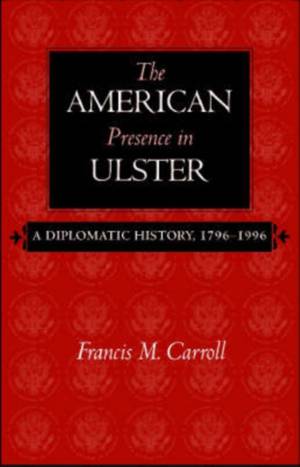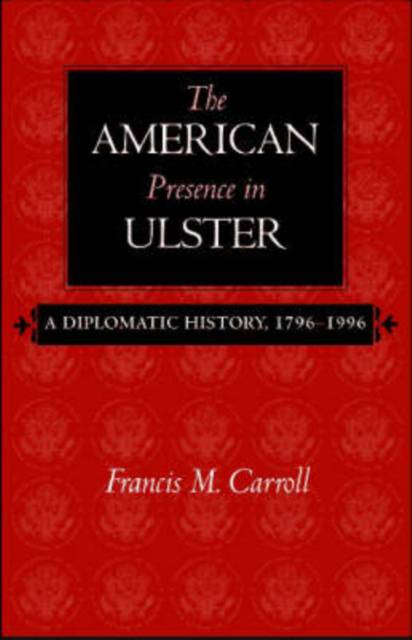
- Retrait gratuit dans votre magasin Club
- 7.000.000 titres dans notre catalogue
- Payer en toute sécurité
- Toujours un magasin près de chez vous
- Retrait gratuit dans votre magasin Club
- 7.000.000 titres dans notre catalogue
- Payer en toute sécurité
- Toujours un magasin près de chez vous
The American Presence in Ulster
A Diplomatic History, 1796-1996
Francis M Carroll
Livre broché | Anglais
48,45 €
+ 96 points
Description
The American Presence in Ulster tells the story of the link between Ulster and the United States and presents the first general history of the U.S. Consulate in Belfast. While many historians have written about the impact of Ulster on the United States, this book also highlights the profound impact the United States has had on Ulster. The history of the Consulate General provides a unifying theme in this story, and the rich resources of the U.S. State Department and the Public Records Office of Northern Ireland make possible a unique view of both the culture and commerce of the province and also the growth of the Consular Service. Written in a wonderfully clear and engaging style, this book spans the two hundred years since the opening of the Consulate General in 1796. By the late eighteenth century, almost half a million Ulstermen had migrated to America and strong economic ties had been forged. The linen industry in Ulster obtained most of the flax seed supply from the United States and sold most of its finished cloth to Americans. This was the beginning of a flow across the Atlantic of people and culture, goods and commerce, ideas and good will--a movement that has continued in peace and war, as well as in prosperity and famine, up to the present. By the 1990s President Bill Clinton was fully engaged in working to promote the Peace Process in Northern Ireland. During his presidency, the Consulate General celebrated the bicentennial anniversary of its founding. It was recognized as one of the first opened by the new republic and one of the longest to have remained in continuous service. It was also heralded as one of the largest in the U.S. Foreign Service. These recent events may have been among the most dramatic examples of the American presence in Northern Ireland, but as this story shows, they have been preceded by a long and colorful history.
Spécifications
Parties prenantes
- Auteur(s) :
- Editeur:
Contenu
- Nombre de pages :
- 298
- Langue:
- Anglais
Caractéristiques
- EAN:
- 9780813214207
- Date de parution :
- 08-11-05
- Format:
- Livre broché
- Format numérique:
- Trade paperback (VS)
- Dimensions :
- 164 mm x 215 mm
- Poids :
- 430 g







